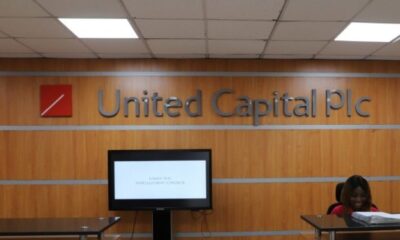Telecommunications and mobile money services, Airtel Africa Plc has reported $523 million as profit after tax for nine months ended December 2022. The amount is 1.7% higher than the $514 million in the same period of the previous year.
According to the company’s financial report obtained by Investors King, revenue increased for the period by 17.3% to close at $3.9 billion compared to the $3.5 billion in the previous year. The increase was driven by increase in voice revenue, data revenue, mobile money revenue and other revenue.
While revenue growth in constant currency was 17.3% (18.0% in Q3’23) driven by double digit growth across all reporting segments, Mobile Services revenue in Nigeria grew by 20.9%, in East Africa by 11.9% and in Francophone Africa by 11.8% (and across the Group by 15.9%, with voice revenue growth of 12.7%and data revenue up 22.3%). Similarly, Mobile Money revenue grew by 29.8%, driven by 32.5% growth in East Africa and 21.7% in Francophone Africa.
During the period, total customer base increased to 138.5 million (up 10.1%), as the penetration of mobile data and mobile money services continued to rise, driving the data customer base up 13.6% and mobile money customer base up 22.2%. the company also saw ARPU growth of 7.2% in constant currency, largely driven by increased usage across voice, data, and mobile money and Mobile money transaction value increased by 37.0%, to an annualised value of almost $100 billion in Q3 2023.
EBITDA was $1,916 million, up 12.6% in reported currency and 17.3% in constant currency, with an EBITDA margin of 49.0%, increasing 20 basis points in reported currency and broadly flat in constant currency. According to the company, EBITDA growth was partially offset by higher foreign exchange and derivative losses of $184 million.
Earnings Per Share before exceptional items was 10.8 cents, a reduction of 5.8% largely driven by higher foreign exchange and derivative losses of $184 million. Basic EPS increased to 12.5% (up by 6.3%) as a result of deferred tax asset recognition in Kenya. Meanwhile, EPS before exceptional items and excluding foreign exchange and derivative losses increased by 21.6%.
Providing update on trading, Segun Ogunsanya, Chief Executive Officer, Airtel Africa explained that the strong results are testament to this strategy despite the current macro-economic and geopolitical uncertainties.
He noted that the execution of its six-pillar strategy continues to provide the foundation for growth, driving 10% customer growth, supported by 14% growth in data customers and over 22% growth in mobile money customers. He added that higher usage across voice, data and money, have contributed to further ARPU growth of over 7%, resulting in 18% revenue growth in the quarter as penetration across each segment continues to increase.
He said, “I am particularly excited by the performance of our mobile money business, with annualized transaction value reaching nearly $100 billion, as we continue to drive financial inclusion in the continent. Despite the inflationary pressures across our markets, the strong revenue performance in the first nine months of the year, combined with continued focus on cost optimisation, contributed to EBITDA growth of over 17% in constant currency, with stable EBITDA margins. Our strong operating performance, combined with continued focus on our capital allocation priorities has facilitated the de-risking of our balance sheet with the early repayment of $450m HoldCo debt in July this year.”
Looking forward, he said the company will continue to invest in expanding its network and evolving its service offerings to further deepen both financial and digital inclusion across markets as the company has especially focused on enhancing its spectrum footprint across all our markets.
He added, “Over the last nine months we have spent almost $490 million on 4G and 5G spectrum across key markets to improve network capacity and quality, future-proof the company for continued growth opportunities and facilitate economic progress in all our markets. I am particularly pleased with these results which demonstrate the opportunities these markets offer, our ability to deliver against these opportunities and the contribution we make to local communities and economies across our footprint. For the remainder of the financial year, we continue to anticipate sustained growth in the business with continued EBITDA margin resilience.”


 Billionaire Watch3 weeks ago
Billionaire Watch3 weeks ago
 Startups4 weeks ago
Startups4 weeks ago
 News4 weeks ago
News4 weeks ago
 News4 weeks ago
News4 weeks ago
 Bitcoin4 weeks ago
Bitcoin4 weeks ago
 Naira4 weeks ago
Naira4 weeks ago
 Forex3 weeks ago
Forex3 weeks ago
 Treasury Bills4 weeks ago
Treasury Bills4 weeks ago






















